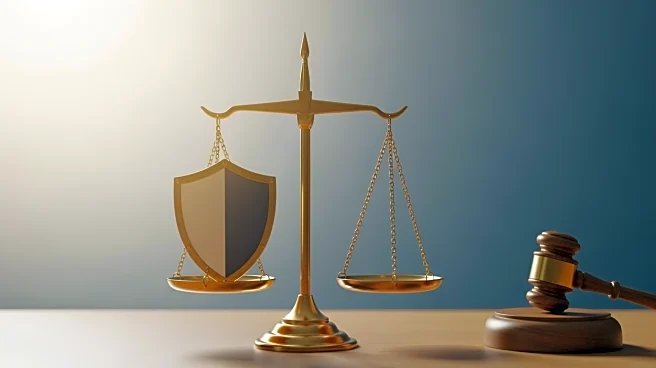What's Happening?
Rep. LaMonica McIver (D-N.J.) is seeking to dismiss federal charges against her by invoking a legal argument that extends the broad immunity granted to President Trump by the Supreme Court to members of Congress. The case, heard by Judge Jamel K. Semper
in the US District Court for the District of New Jersey, involves McIver's alleged assault on federal officers during an oversight inspection at an immigration detention center. McIver's defense argues that her actions are protected under legislative immunity, a claim that could set a precedent if accepted. The defense also attempts to link her immunity to the Supreme Court's 2024 ruling on Trump's criminal case, which could have significant implications for legislative immunity.
Why It's Important?
This case could redefine the scope of legislative immunity for Congress members, potentially aligning it with the immunity granted to the President. If successful, it may provide broader protections for lawmakers against criminal charges related to their official duties. The outcome could influence future legal strategies for Congress members facing prosecution and impact the balance of power between the executive and legislative branches. The case also highlights ongoing tensions between the Department of Justice and lawmakers, particularly those opposing President Trump.
What's Next?
Judge Semper's decision on McIver's motion to dismiss will be pivotal. If the court accepts the argument, it could lead to an appeal and potentially reach the Supreme Court, setting a national precedent. The case may also prompt legislative and judicial reviews of the current immunity standards for lawmakers, influencing future legal interpretations and prosecutions.
Beyond the Headlines
The case raises questions about the separation of powers and the extent of legal protections for government officials. It also reflects broader political dynamics, as McIver is among several Trump opponents facing DOJ charges. The legal community is closely watching to see if the court will extend the Supreme Court's rationale from the Trump case to Congress, which could alter the legal landscape for legislative immunity.

















